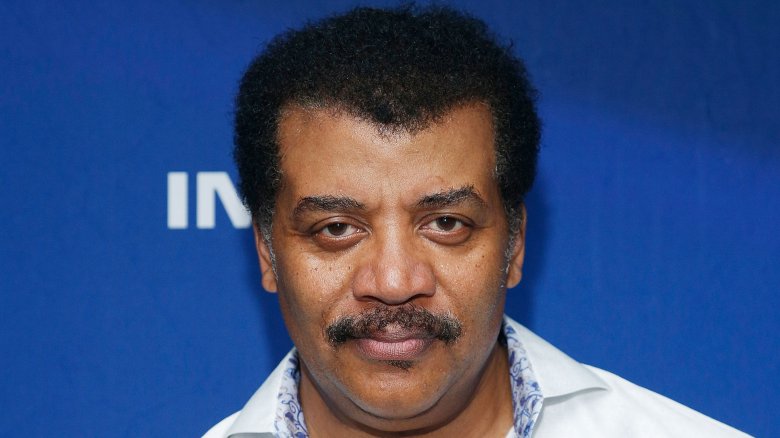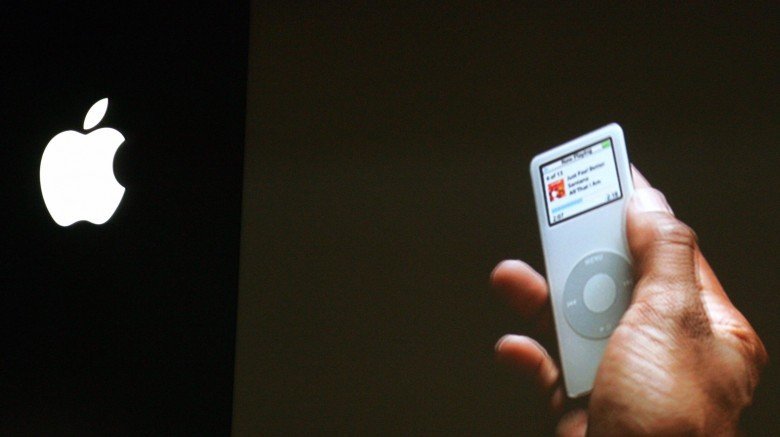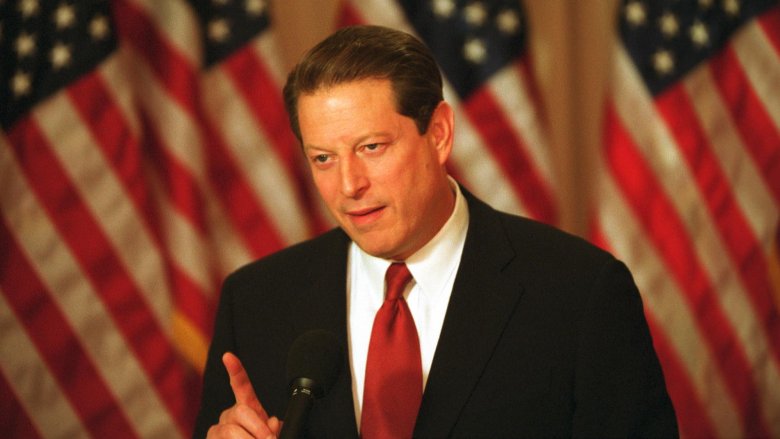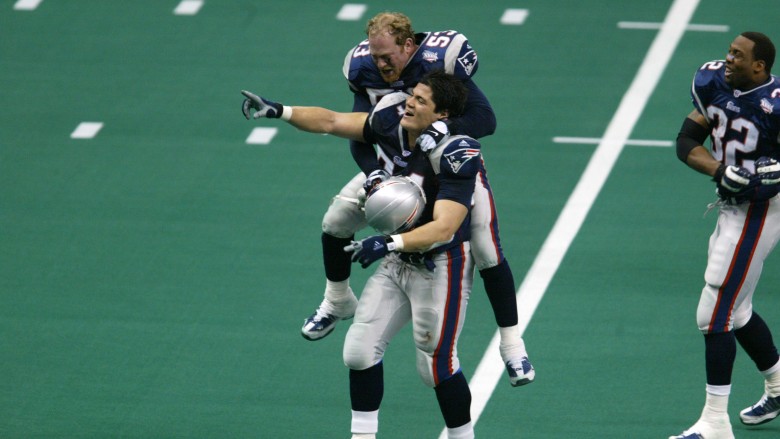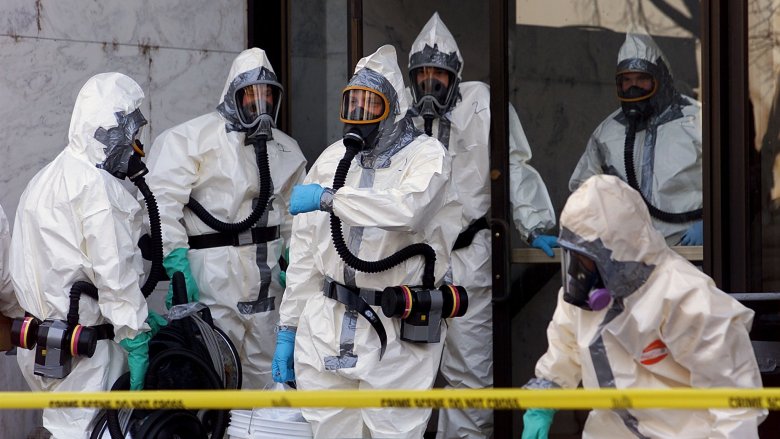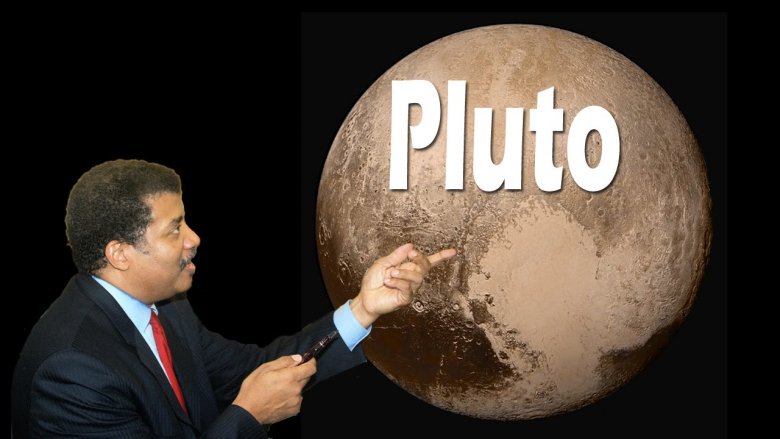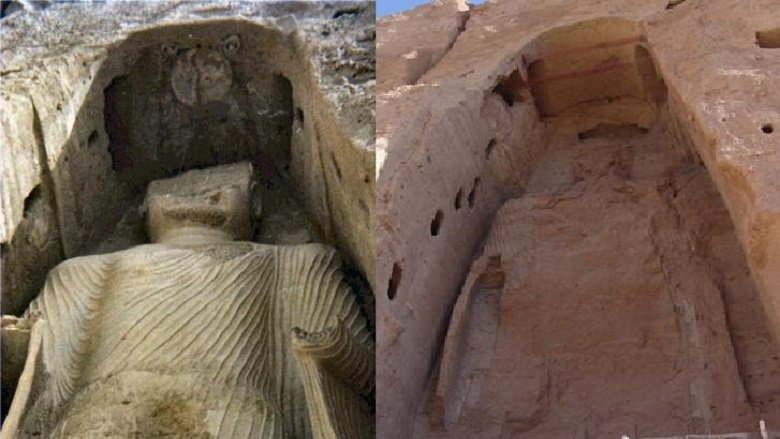False Facts About The Early '00s You Always Thought Were True
The early 2000s were a busy time to be alive. The dotcom bubble exploded, 9/11 happened, the U.S. got sucked into two neverending foreign wars, Friends finally ended, and two little sites known as Facebook and YouTube quietly changed the internet forever. With all those history defining events spinning around in the mix (um, plus Friends), it's tempting to think those who lived through these times will be venerated by future historians for their unique insight into such vital questions as "what happened during Hurricane Katrina," and "dear God, why did anyone ever think MySpace was a good idea?"
At least, that's what witnesses to the early '00s would probably like to believe. The truth is that any useful recollections you ever had of those heady years is likely already buried beneath a sea of misinformation, faulty memories, and downright lies. You probably think you can remember how this crazy millennium started. There's a good chance you're wrong.
The Y2K hullaballoo was a total joke
If you were alive and prone to panicking in 1999, it looked a whole lot like the 21st century was gonna start with an apocalyptic bang. Y2K was the computer bug that would lead to planes dropping out the sky and other incredibly Not Fun things. Only it didn't exactly work out like that. Come midnight, December 31, 1999, nothing happened. Y2K was such a big, fat flop that anyone who remembers it today remembers it as somewhere between a waste of money and a dumb panic akin to freaking out about kittens being stuffed into jars.
There's no disputing that Y2K didn't cause Armageddon. But nor was it the non-event of modern lore. Far from being a damp squib, Y2K affected the course of the entire digital world.
Slate has the story. In the runup to Y2K, the U.S. government spent unbelievable sums trying to combat the bug. With all that money being poured into IT, it was inevitable the industry would change. U.S. government information-sharing systems came within spitting distance of most modern digital democracies for the first time. Regular companies were forced to make IT a central plank of their business models, while tech companies got a huge spending boost. If that sounds a little abstract, there were concrete benefits to the Y2K panic, too. During 9/11, it was the emergency systems built to combat a Y2K shutdown that allowed New York City's infrastructure to keep running. Like God, government spending moves in mysterious ways.
Everybody hated Attack of the Clones when it came out
When word got out that George Lucas was finally releasing Star Wars prequels, the world rejoiced. Then Jar Jar Binks crapped all over it. And just like that, the prequels would go down in history as the most squandered opportunity in moviedom. Of the three prequels, the second, Attack of the Clones, gets a lot of love for being the most hated of the series. That's a pretty hard trick to pull off, considering there's 90% less Jar Jar. So, obviously everyone hated it when it came out, right?
Actually ... Attack of the Clones got pretty positive reviews. A few pointed out the big difference, such as Judith Egerton of the Courier-Journal in Louisville, who called it "Superior to Episode I — The Phantom Menace, with its annoying Jar Jar Binks and its dull, galaxy-hopping story line." Forrest Harman of the Reno Gazette-Journal went even further, saying, "Lucas returns the series to its roots, delivering a cartoon-like adventure that uses special effects to enhance rather than replace storytelling." You'd think Lucas had made Rogue One with reviews like that!
What happens often is, a lot of revisionist movie reviewing happens in retrospect. People try and paint a different picture of what really occurred, but for the most part, the reaction to Attack of the Clones was positive. Of course, once we got past Jar-Jar and realized the movie was 90% whining and 10% whining about sand, then we gave in to our hate.
Apple invented the mp3 player
It's not a stretch to say that Apple has done more to change the world in the last 10 years, than the whole world itself changed in the 19th century. The iPhone, apps, iPad, that watch that no one bought except Apple hipsters ... the list goes on. But the thing that started it, the thing that killed the music industry for all intents and purposes, was the MP3 player. First introduced in October 2001, the iPod — clocking in at an enormous 5 gigabytes – promised to put your entire music library at the tips of your fingers. Viva la Apple!
Now, people certainly ate up the iPod, and some people nowadays spend plenty on classic iPods, but most people forget that the iPod wasn't even the first MP3 player. You see, Apple rarely invents something — rather, they take something and make it better. In this case, the MP3 player had existed since 1998. What Apple did was tie their MP3 player to a music player (iTunes) and make it simple to use. Apple also marketed their product better than every other MP3 player combined (we're looking at you, Zune), working to wipe out all competition until all that was left to take out of commission was themselves. And they did that, by taking an iPod and sticking it in a phone.
The Iraq War was really about oil
The last troops involved in the Iraq War pulled out only in 2011, yet already the general public's knowledge of the conflict has become fuzzy. Regardless of political leanings, the major takeaway the average Joe has of America's most significant recent conflict is that the WMDs were false, and the U.S. and Britain attacked Iraq because they could somehow make some oil money or something.
Whatever it is, the assumption is the war happened for underhanded reasons. As Vox has argued, there was nothing so nefarious at work. The cause of the Iraq War wasn't Big Oil shadily manipulating the government, but George W. Bush's political convictions.
Neoconservatism was big in the '90s, just as Bush was learning the ropes of politics. Its whole foreign policy deal was that authoritarian regimes are like playground bullies, ruining recess for everyone. Since God made America the biggest kid in school, America had to stand up to these jerks. Under Clinton, the U.S. had stood by while Serbia was beating on the other Balkan nations, which neocons saw as a moral failure. So when Bush hit the White House, his team openly wanted to use American might to stop another Bosnia. That meant bloodying the nose of bullies like Iraq to make the playground safer for everyone.
In hindsight, that plan didn't exactly work out. The wave of predicted democracy vanished under a tsunami of blood. Iraq was an experiment in applied political theory, and it failed miserably.
Al Gore won the 2000 election
For liberals who can remember the early 2000s, there's one unacknowledged truth of the half-decade that stands head and shoulders above the rest: Al Gore won that election. It's a certainty that's been fixed in people's minds since the Supreme Court controversially halted a statewide recount ordered by Florida's highest court, and later boosted by Michael Moore's Fahrenheit 9/11. By this point, anyone to the left of Bush basically thinks the election was stolen.
With such a crazy-close election, it's impossible to definitively state who would have won were every single vote recounted by hand. But it is possible to say who would have been most likely to win. In 2001, a massive media consortium funded a whole bunch of studies into the Florida recount. They showed that, in most scenarios, Bush still won by the narrowest of margins (via CNN).
There are many reasons a ballot may get discounted. The Florida recount focused only on "undervotes," ballots that weren't punched properly and registered as non-votes. The studies concluded that, were normal recounting standards applied, Bush would have carried Florida on these undervotes by a few hundred ballots. Interestingly, the studies also concluded a full recount including other forms of spoiled ballots could have given Gore a lead of 60-ish votes, but you gotta remember this option was never on the table in 2000. Even Gore was only advocating for an undervote recount. Had the Supreme Court not intervened, Bush would have almost certainly still squeaked through.
The Patriots cheated to win the Super Bowl vs. the Rams
Oh those tricky New England Patriots. Spygate, Deflategate — they got more scandals than a double-thick tabloid. If you ask anyone not in New England, they'll tell you the New England Patriots have cheated their way to five Super Bowl wins.
And this isn't just a new thing, you see — the Patriots even cheated when winning their first Super Bowl title, in 2002. Even Rams players, like Hall of Famer Marshall Faulk, know that the Patriots secretly videotaped Rams' practices to obtain an advantage over the high-powered Rams, who were unstoppable throughout the season. Because that's the only way a sixth-round pick like Tom Brady, and a failed Browns coach like Bill Belichick could do anything right: by cheating!
Only problem is ... the Patriots didn't cheat to pull the upset. Yes, the Patriots were 14-point underdogs against a high-powered offense, but the Rams lost fair and square. All the "Patriots cheated" squabble traces back to a Boston Herald report about illegal videotaping. The Herald later retracted their report after learning their source was wrong. That retraction came in 2008, but the mighty juggernaut ESPN — the alleged "Worldwide Leader in Sports"– kept the falsehood going for seven years. It wasn't until 2015 when ESPN retracted their reporting of the original Herald story ... and they waited until 12:30 am to let a sleeping America know they dun messed up. There's plenty of reasons to hate on the Patriots (why must Brady be so pretty?!), but calling them cheaters on their first Super Bowl doesn't cut it.
The anthrax letters were related to Islamic terrorism
Just seven days after 9/11, five anthrax-laden letters were quietly dropped into a mailbox in Trenton, New Jersey. Over the next few weeks, 17 people were infected, five of whom died (via Smithsonian). Coming so soon after Islamist extremists had murdered nearly 3,000 people in New York City, the attacks sent America into a paranoid meltdown. Many letters contained phrases such as "Allah is Great," and news outlets such as The Guardian reported a link to the 9/11 hijackers. Maybe it's no surprise many still think the two were connected.
It's a connection that makes sense ... until you realize we almost certainly know who actually did it. His name was Dr. Bruce Edwards Ivins, and he worked on anthrax for the U.S. Army. Ivins was never convicted, having committed suicide before the case went to court.
The Department of Justice released their case against Ivins in 2008, and it's damning. The anthrax spores used in 2001 were genetically traced back to spores in a single flask known as RMR-1029, a flask that was in the sole care of Ivins. The spores used were at a level of purity only a handful of experts in the world could have produced — one of whom was Ivins. The envelopes used were sold near Ivins' home, Ivins was witnessed threatening to kill people, and he tried to dispose of evidence while under FBI surveillance. The list goes on, but that seems like a pretty solid case already.
Neil deGrasse Tyson was responsible for Pluto's downfall
In August 2006, space lovers woke up to some distressing news. Pluto, the ninth planet of our solar system, was no longer a planet. It had been downgraded to a "dwarf planet." Worse still, the person responsible wasn't some faceless scientist. It was Neil deGrasse Tyson, the lovable astrophysicist. The Cosmos presenter's role in kicking Pluto down a notch is still remembered today, with The Big Bang Theory riffing on it, and Tyson publishing a book of the hate mail he subsequently received from angry third graders.
Tyson really was one of the first people to advocate downgrading Pluto. But science doesn't work by just following TV presenters, no matter how popular. It works by presenting evidence, and it was Caltech astronomer Mike Brown who found the evidence that killed Pluto. On January 5, 2005, Brown discovered the dwarf planet Eris, an object with 25 percent more mass than Pluto. It was game over for Planet 9.
The discovery of Eris (among others) led the International Astronomers Union to vote on downgrading Pluto. Brown has since written books about killing Pluto and, according to Space.com, tweets under the handle @PlutoKiller. Tyson himself has quipped that, in the killing of Pluto, "all I did was drive the getaway car!" So why does he still get blamed? It's probably because Tyson loves the publicity. When New Horizons did its Pluto flyby in 2015, the astrophysicist trolled the internet by tweeting controversial #PlutoFacts ... about Pluto the cartoon dog.
The Buddhas of Bamiyan were destroyed because Islam hates images
Before ISIS decided to try for some sort of record in the Evil Olympics, the world's greatest act of post-World War II cultural desecration was the Taliban's blowing up of the Buddhas of Bamiyan. Two gigantic statues of Buddha (duh) carved from cliffs in the north of Afghanistan, the Buddhas had survived nearly 1,500 years before the Taliban dynamited them in Spring 2001. It was the West's first real encounter with the extremist Islamist belief that figurative art deserves a violent response.
Except it wasn't. While terrorists have since murdered people for drawing pictures of Muhammad, the death of the Bamiyan Buddhas was down to something far more prosaic: money.
In spring 2001, Afghanistan was suffering under a famine worsened by U.N. sanctions. At that point, the Buddhas had stood untroubled under Taliban rule for three years. Mullah Omar had even issued a fatwa that the statues be protected (via The Guardian). But now Afghanistan was in dire need of money to ward off starvation. A UNESCO delegation offered the Taliban millions of dollars, but only if they spent it on preserving the Buddhas. As one of their commanders later told the New York Times, the well-meaning offer pretty much confirmed the Taliban's suspicions that the West cared more about statues than ordinary Afghans. Mullah Omar then ordered the statues destroyed, as The Guardian's reporter described it, as a way of "thumb(ing) his nose at the international community." It was a heinous decision, but it was a political one.
The greatest post-9/11 road trip ever
In the aftermath of the 9/11 attacks, America was at a standstill. Literally and figuratively; the FAA grounded all air traffic. So no matter who you were, you weren't flying anywhere for a couple of days. Michael Jackson celebrated his 30th year in entertainment with momentous concerts in New York on September 7 and September 10, 2001. Needless to say, that left the King of Pop stuck in New York during the attacks.
As the story goes, Michael Jackson, being Michael Jackson, did Michael Jackson-type things. That meant having his friends Elizabeth Taylor and Marlon Brando at his performance, with Taylor introducing him and Brando doing Brando things like rambling on about nothing. After the attacks, all three wanted to get out of New York as quickly as they could, so they road-tripped to Ohio. Because of course they did. Brando supposedly wanted to stop at every KFC and Burger King they passed.
The only problem is the road trip never happened, but the actual story is almost as good as the fake one. Jose Eber, hairstylist to the stars, informed Liz Taylor about the attacks. Tim Mendelson, a close friend of Taylor's, received a call from Carrie Fisher reporting that her mom, Debbie Reynolds, was all alone in New York. Liz called Debbie, and the two stayed together for about a week after the attacks, at the St. Regis on 55th Street.
As for Michael, after 9/11 he headed to New Jersey via his tour bus and ended up staying at the home of his friend, Frank Cascio. After Jackson secured his family and children in New Jersey, he turned his attention to his fans stuck in New York. Jackson actually paid for close to three dozen non-American fans to stay in New Jersey until they could return home via airlines. Now that's the story that should be out there.
